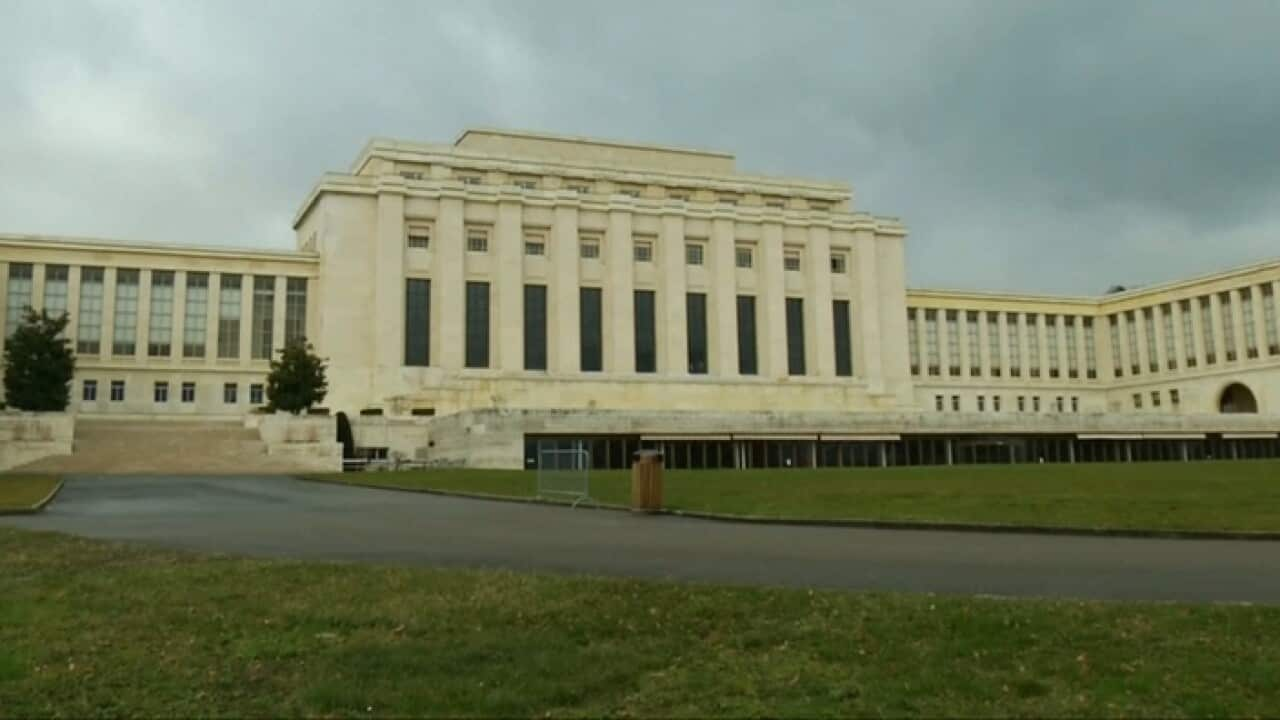The trial of the women, who have been held for nearly a year without charge, comes as Saudi Arabia seeks to placate international criticism over last year's brutal murder of insider-turned-critic Jamal Khashoggi.
Prominent activists Loujain al-Hathloul, Hatoon al-Fassi, Aziza al-Yousef and Eman al-Nafjan were among those who attended Riyadh's criminal court, where they heard charges raised against them, court president Ibrahim al-Sayari said.
Family members of the women - some of whom allegedly faced torture and sexual harassment during interrogation - were permitted to attend the opening court session, but foreign journalists and western diplomats were barred from entering.
Visibly-distressed relatives huddled together outside the court room, clutching handwritten appeals for the judge as they awaited their turn to unite with the detainees inside. The charges against the women were not disclosed to the public.
The charges against the women were not disclosed to the public.

Hatoon Ajwad al-Fassi, author of "Women in Pre-Islamic Arabia: Nabataea", is on trial. Source: REUTERS/Fahad Shadeed
But London-based rights group ALQST said they were charged under the kingdom's sweeping cyber crime law, which carries prison sentences of up to 10 years, based on their contact with "hostile entities" including human rights organisations.
Sayari said the women would have access to independent lawyers for the trial, a right that family members claimed they had been denied for the entire stretch of their detention. "It now seems that the authorities will charge the women's rights activists, after keeping them in detention for nearly one year without any access to lawyers, and where they faced torture, ill treatment and sexual harassment," said Amnesty International's Middle East campaigns director Samah Hadid.
"It now seems that the authorities will charge the women's rights activists, after keeping them in detention for nearly one year without any access to lawyers, and where they faced torture, ill treatment and sexual harassment," said Amnesty International's Middle East campaigns director Samah Hadid.

Saudi women walk past cars in a Riyadh, Saudi Arabia Source: AP
"The authorities are now treating defending women's rights as a crime, which is a dangerous escalation in the country and their crackdown on human rights activism," Hadid told AFP.
'Escalating repression'
More than a dozen activists, many of whom campaigned for years for the right to drive, were arrested in May last year - just a month before the kingdom ended its longstanding ban on female motorists. Some were subsequently released.
The detained activists were accused of undermining national security and aiding enemies of the state, while state-backed media branded them as traitors and "agents of embassies".
Human Rights Watch researcher Adam Coogle said the trial and alleged mistreatment of the women "is yet another sign of escalating repression in Saudi Arabia".
"Authorities should immediately halt these unfair proceedings and release any activist charged solely based ontheir peaceful activism," he told AFP.
Amnesty and the family of Hathloul, who was among the detainees allegedly tortured and sexually harassed during interrogation, had voiced fears that the women would be charged with terrorism.
The trial was expected to take place at Riyadh's Specialised Criminal Court, established to handle terrorism-related cases but widely used to try political prisoners.
But relatives of the detained women said on Wednesday they received a call from authorities at midnight, informing them the trial had been shifted to the criminal court. No reason was given.
Paving way for acquittal?
The move has triggered speculation that the activists could be released under the cover of a judicial process, afterthe crackdown prompted scathing criticism against Crown Prince Mohammed bin Salman.
"Terrorism charges are very hard politically for the Saudi government to go soft on, but criminal charges may open the door for an acquittal," Bessma Momani, a professor at Canada's University of Waterloo, said.
"The Saudis need to change the page on this file badly - its economy and success of its reform drive hinges on removing the negative perceptions that the arrests of these women has caused," she told AFP. Prince Mohammed's much-trumpeted drive to modernise the conservative kingdom has been dented by the crackdown.
Prince Mohammed's much-trumpeted drive to modernise the conservative kingdom has been dented by the crackdown.

Aziza al-Yousef drives a car on a highway in Riyadh, Saudi Arabia, as part of a campaign to defy Saudi Arabia's ban on women driving. Source: APP
The detentions were part of a deeper crackdown by Saudi authorities on activists, clerics and critics in recent years, in what was widely seen as a stamping out of political dissent.
It has ramped up western pressure on Saudi Arabia, which has faced global outrage over journalist Khashoggi's murder in the Saudi consulate in Istanbul last October.


